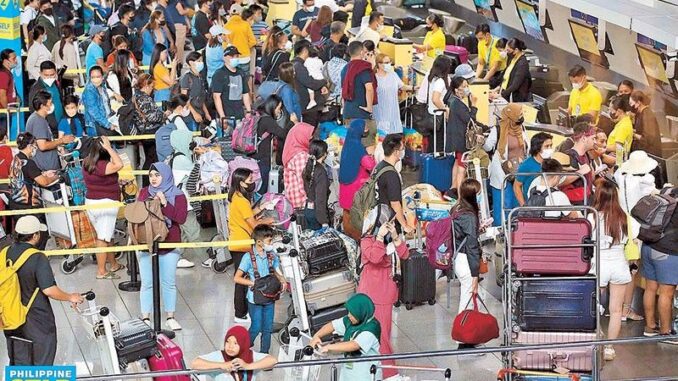
MANILA, Philippines — The Ninoy Aquino International Airport (NAIA) attained the 50-million mark in passenger traffic for the first time in history in 2024, a new record high for the country’s main gateway.
In a report, NAIA operator New NAIA Infrastructure Corp. (NNIC) said the airport handled 50.1 million passengers last year – its highest in history – breaking the previous high of 47.9 million in 2019.
The figure also surpassed by 10 percent the 2023 total of 45.39 million, exhibiting the resilience of air travel here and abroad in the aftermath of the COVID pandemic.
Moreover, aircraft movement in NAIA went up by five percent to 293,488 in 2024, resetting the previous record of 279,953 in 2023. The gateway has the airlines to thank for this growth, as they keep on expanding their Manila flights to cater to rising demand.
NNIC president Ramon Ang said NAIA was able to set an all-time-high mark as travelers have become confident again to make trips locally and internationally. He underscored that the goal is to sustain this momentum by improving the airport further.
“This growth is a clear sign that confidence in air travel has returned, and it motivates us to work even harder,” he said.
NNIC, led by San Miguel Corp., bagged the concession for the P170.6-billion rehabilitation of NAIA, and has taken over the airport since September 2024.
Since then, NNIC has introduced a series of reforms and reworks in NAIA – from declogging the arrival and departure bays, to enhancing the free internet in terminals – to manage the increase in passenger volume.
The largest Philippine carriers are also helping NNIC sustain the liveliness of NAIA. Flag carrier Philippine Airlines launched direct flights between Manila and Seattle last year, contributing to the expansion of NAIA’s international reach.
Low-cost carrier Cebu Pacific did the same by reaching untapped markets in Southeast Asia by way of NAIA, including Da Nang, Vietnam and Chiang Mai, Thailand. The airline will also link Manila and Sapporo starting Jan. 16.
Under private hands, NAIA will expand its passenger capacity to 62 million per annum, from 35 million right now, to accommodate future travel to Mega Manila.
NNIC is also tasked to come up with ways and introduce solutions that would speed up aircraft movement in NAIA to 48 an hour, from 40 currently.


Be the first to comment